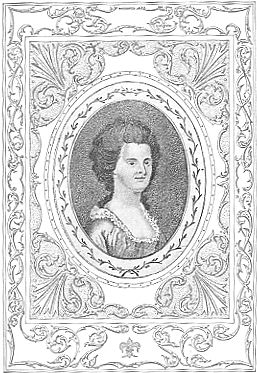Contents

Contents
Ann Eliza Bleecker, whose name is prominent in the list of the female poets of our country, was the youngest child of Brandt Schuyler of New York, where she was born in 1752. In her early years she was passionately fond of books, and wrote verses, which, however, were shown to none but her most intimate acquaintances. After her marriage, at the age of seventeen, to John J. Bleecker, of New Rochelle, she removed to Poughkeepsie, and thence to Tomhanick, a pretty and secluded village about eighteen miles from Albany, where her residence was well suited to her romantic tastes. The house commanded a beautiful view; on one side was a fine garden, filled with flowers and fruit trees, and beyond it the Tomhanick River dashed foaming over a bed of broken rocks. On the other lay wide cultivated fields; a wood, through the openings of which cottages might be descried, bounded the orchard in the rear, and in front a meadow, through which wandered a clear stream, stretched itself to join a ridge of tall pines on the shelving side of a mountain. To the imagination of Mrs. Bleecker, the dark forest, the green valley and the rushing river had more charms than the gay city she had quitted; but her tranquil enjoyment of these lovely scenes, in the cultivation of her flowers and grounds, and the indulgence of her poetical tastes, was destined to be shortlived.
The approach of Burgoyne’s army, in 1777, drove the family from their rural retreat. While Mr. Bleecker was gone to Albany to seek a place of refuge for them, his wife was terrified by news that the enemy were close to the village, burning and murdering all before them. With her children and one servant, she fled to a place called Stony Arabia. The roads were crowded with carriages loaded with women and children; distress and weeping were everywhere; no one spoke to another, and the tramping of horses and the dismal creaking of burdened wheels alone interrupted the mournful silence. Mrs. Bleecker obtained a place for her children in one of the wagons, and herself performed the journey on foot. But when she reached the place where she hoped to find friends, no door was open to her. She wandered from house to house, and at length obtained an asylum in the garret of a rich acquaintance, where a couple of blankets, spread on boards, were given her as a bed. The night was passed in tears; but the next day Mr. Bleecker came and brought them to Albany, whence they set off with several other families by water. A more severe distress here overtook the mother – her little daughter being taken so ill that they were obliged to go on shore, where she died, and was buried on the banks of the river. This bereavement was followed in rapid succession by the death of her mother and sister.
In August of the year 1781, while Mr. Bleecker was assisting in the harvest, he was taken prisoner by one of the scouting parties from Canada. His wife abandoned herself to hopeless grief. She says, “My hour of darkness and astonishment was very great; I lifted my broken heart in despair.” But after the agonizing suspense of a few days, her husband returned, having been rescued by a party of Americans.
Amid the scenes of distress, in many of which Mrs. Bleecker was a principal sufferer, she was sustained by the hope of yet seeing the footsteps of desolation effaced from the soil. She was not destined, however, to behold the recovery of her native land from the ravages of war. After a rapid decline, the struggles of this calm and lovely spirit were ended in death, in November, 1783.
The benevolence of Mrs. Bleecker’s heart overflowed on all with whom she associated. “To the aged and infirm,” says her daughter, “she was a physician and a friend; to the orphan a mother, and a soother of the widow’s woes.” She is said to have possessed a considerable share of beauty, her figure being tall and graceful; and her easy, unaffected deportment and engaging manners prepossessed strangers in her favor. Her letters describing the scenes around her show her ardent and poetical temperament. An intense love of nature appears in her poems, and a warmth of heart, with a delicacy and taste, that cannot fail to please; though they lack the high finish a greater severity of critical judgment would have bestowed.
Mrs. Bleecker’s daughter, Margaretta Faugeres, was also a poet, and has sung in sweet strains “the hoar genius of old Hudson’s stream,” including a description of the scenery of Fort Edward and West Point. In the latter portion is introduced a highly poetical “Vision of Arnold,” where Treason is personified, plotting her dark schemes while bending over the bright waters, and stealing softly to the traitor’s couch. Margaretta became distinguished after the war, in New York fashionable society, as a gifted and accomplished woman, although her married life was rendered unhappy by a profligate husband. After his death in 1798, she assisted in a female academy in New Brunswick; but her sufferings had broken her heart. She died, a hopeful Christian, at the early age of twenty-nine.

